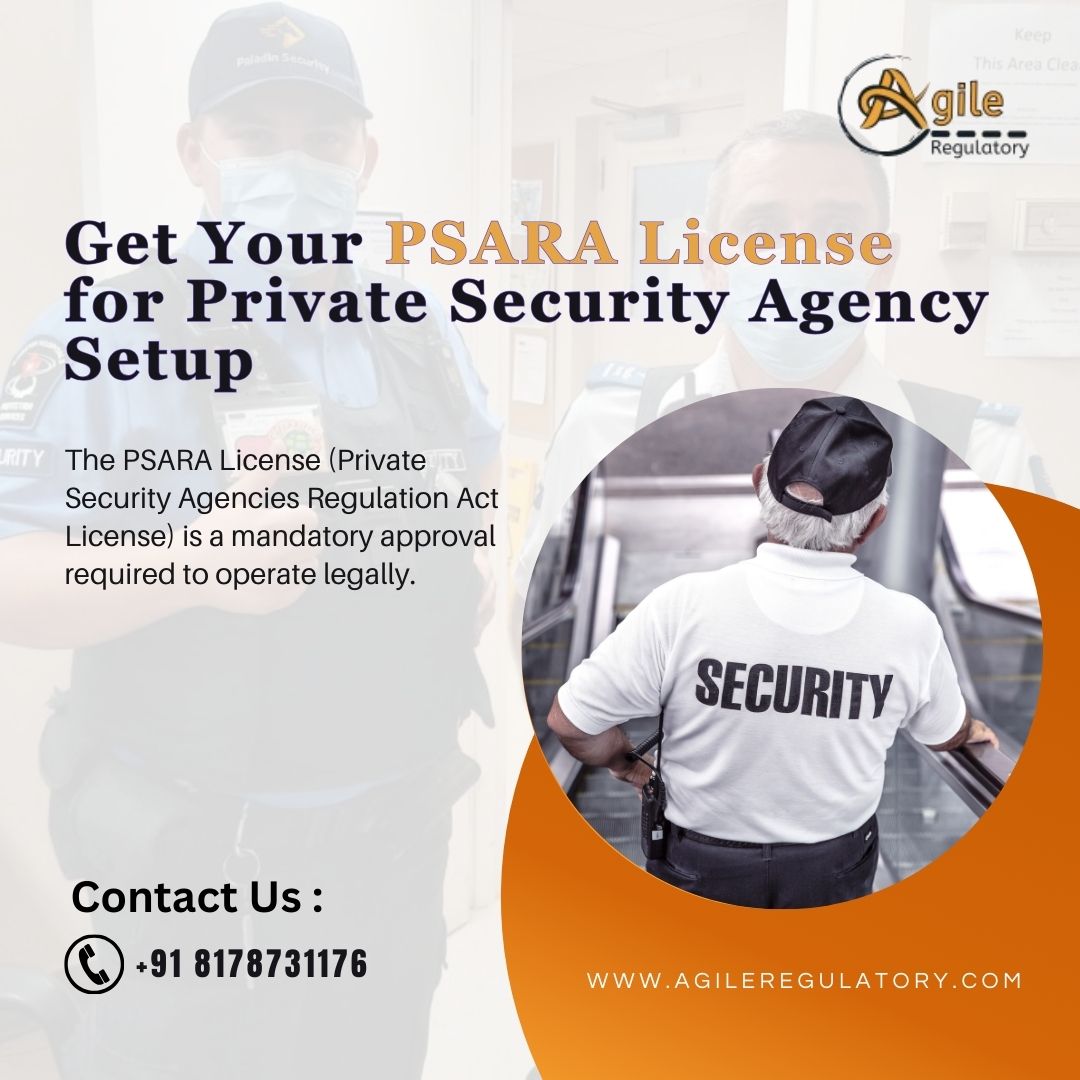
The security services industry plays a vital role in maintaining public safety and protecting assets across residential, commercial, and industrial sectors. With increasing demand for private security, the need for proper regulation and adherence to professional standards has become more crucial than ever. In this context, businesses operating in the security sector must prioritize legal compliance and standardized operations to mitigate potential risks.
Understanding Business Risks in the Security Sector
Security service providers face multiple business risks, including:
-
Legal Liabilities from unlicensed operations
-
Operational Inefficiencies due to lack of structured protocols
-
Reputational Damage from poorly trained or unverified guards
-
Penalties or Shutdowns for violating local/state laws
Without a proper legal foundation, even the most well-intentioned agency can face severe setbacks—financial, legal, and reputational.
The Importance of Legal Compliance
Legal compliance is the backbone of risk mitigation in the security sector. In India, operating a private security agency without proper authorization is a punishable offense under the Private Security Agencies Regulation Act (PSARA), 2005. This law mandates that all agencies providing security guards or services must obtain a PSARA License from the respective State Controlling Authority.
The PSARA License ensures that:
-
The agency employs verified and trained personnel
-
Supervisors meet specific qualifications
-
The business structure and background of owners are legally vetted
-
All operations follow ethical and safety protocols
Compliance with PSARA not only safeguards your agency against penalties but also positions your business as reliable and trustworthy in the eyes of clients and authorities.
Emphasizing Professional Standards
Besides legal compliance, professional standards play a significant role in minimizing business risks. A well-structured security agency should invest in:
-
Regular Training: Guards must undergo rigorous physical and behavioral training, including emergency response, fire safety, and soft skills.
-
Background Verification: All personnel should be thoroughly verified before deployment to avoid legal complications or security breaches.
-
Client Contracts: Clear and enforceable contracts outlining the scope of services, responsibilities, and liabilities are essential.
-
Record Maintenance: Regular audits, attendance logs, and service reports help monitor performance and respond to disputes or complaints efficiently.
These practices promote accountability, reduce human errors, and build long-term client trust.
How Agile Regulatory Helps Reduce Risk
Navigating legal requirements like PSARA licensing, labour law compliance, and documentation can be overwhelming. Agile Regulatory, with over 12 years of experience, offers end-to-end support for businesses in the security industry. From initial consultation and documentation to application filing and license procurement, our experts ensure that your business is legally compliant and audit-ready at all times.
We also assist in preparing SOPs, contracts, and safety policies tailored to your operational model—ensuring you’re not just compliant but also professionally sound.
Conclusion
Running a private security agency without addressing legal and professional risks is a recipe for trouble. By adhering to PSARA regulations and maintaining high operational standards, businesses can avoid penalties, build credibility, and create a secure work environment for both clients and staff. With expert support from compliance partners like Agile Regulatory, risk mitigation becomes a streamlined and stress-free process.